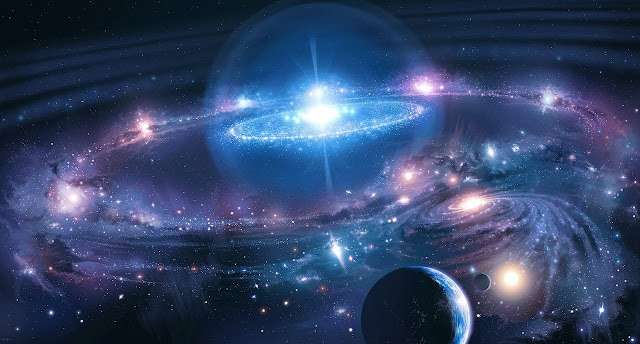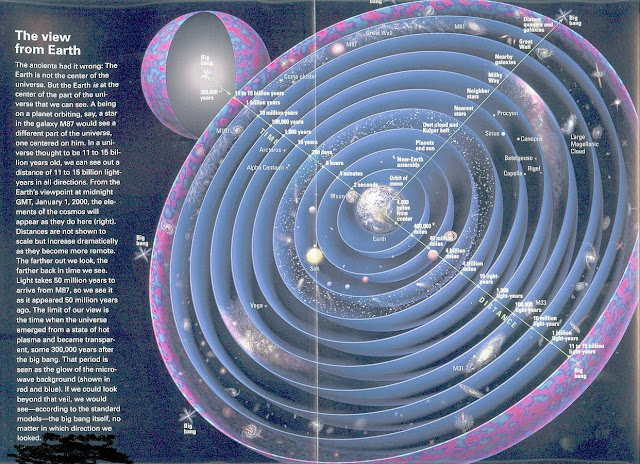- Get link
- X
- Other Apps
- Get link
- X
- Other Apps
Astronomers refer to it as the multiverse. There are multiple universes in this one. Physicists define more than one as an infinite number. These innumerable universes coexist in higher levels that our senses are incapable of directly experiencing.
Nonetheless, astronomers and cosmologists appear to be increasingly using the multiverse to explain baffling observations.
The stakes are really high. Each alternate universe has an own version of reality. There will be one in which you wrote this column and I read it; another in which the Guardian is an alt-right propaganda rag; and yet another in which Donald Trump uses Twitter to distribute only adorable cat videos.
The latest piece of evidence supporting a multiverse comes from the Royal Astronomical Society in the United Kingdom. They recently published a study on the "cold spot." This is an extremely chilly area of space detected in the radiation produced by the Universe's birth around 13 billion years ago.
The cold spot was discovered in 2004 by NASA's WMAP satellite and verified in 2013 by ESA's Planck spacecraft. It's quite perplexing. Most astronomers and cosmologists feel it is exceedingly improbable to have been formed during the creation of the universe since it is mathematically difficult to explain using the prevailing explanation, known as inflation.
This new study claims to rule out a more mundane explanation: that the chilly region is an optical illusion caused by a lack of adjacent galaxies.
One of the study’s authors, Professor Tom Shanks of Durham University, told the RAS, “We can’t entirely rule out that the Spot is caused by an unlikely fluctuation explained by the standard [theory of the Big Bang]. But if that isn’t the answer, then there are more exotic explanations. Perhaps the most exciting of these is that the Cold Spot was caused by a collision between our universe and another bubble universe. If further, more detailed, analysis … proves this to be the case then the Cold Spot might be taken as the first evidence for the multiverse.”
That's some serious thinking. But, if there is a multiverse, scientists must recognize that the ultimate goal of physics - explaining why our universe is the way it is - may be permanently out of grasp.
Physics' ultimate goal has been to explain why our cosmos takes the shape it does. This requires explaining why certain fundamental quantities have the values that they do. For example, the speed of light, the mass of an electron, and the gravitational interaction strength.
However, if there is a multiverse, that quest may be doomed to failure.
As there are an endless number of universes that are similar but somewhat different (such as the one in which you wrote this column rather than me), there will also be an infinite number in which the basic principles of physics are different.
As a result, every potential physics combination is tested across the multiverse. Inevitably, by pure chance, at least one will have the conditions we see around us now. It's just a huge old accident, which doesn't seem very rewarding.
Ironically, one of the most ardent opponents of the multiverse idea is one of its original founders. Princeton University's Paul Steinhardt contributed to the development of inflation, the theory of the start of our world. It's the one who can't explain the cold spot while still giving rise to the multiverse since, according to its arithmetic, once a universe begins to form, it causes more to form indefinitely.
However, Steinhardt rejected his own theory.
In 2014, he told Scientific American magazine, “Our observable universe would be just one possibility out of a continuous spectrum of outcomes. So, we have not explained any feature of the universe by introducing inflation after all. We have just shifted the problem of the original big bang model (how can we explain our simple universe when there is a nearly infinite variety of possibilities that could emerge from the big bang?) to the inflationary model (how can we explain our simple universe when there is a nearly infinite variety of possibilities that could emerge in a multiverse?).”
To put it another way, a multiverse does not sound appealing. It would go right to the heart of physics' purpose. Nature, of course, is unconcerned about this. Perhaps the universe really is this way, and we just have to accept it. Certainly, many people are willing to defend the multiverse as a credible line of thought.
If we truly live in a multiverse, we may rest confident that there is an alternate version of you and me out there who has already figured all of this out (and won a Nobel prize for the effort).

.jpg)

Comments
Post a Comment